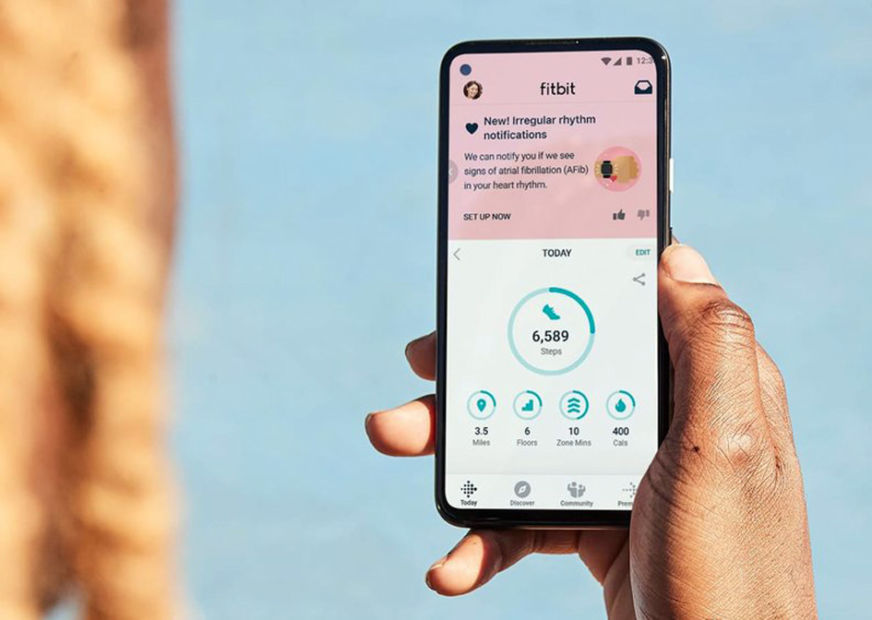FDA approves Fitbit PPG AFib detection algorithm
- April 12, 2022
- Steve Rogerson

The US Food & Drug Administration (FDA) has approved Fitbit’s PPG (photoplethysmography) algorithm for identifying atrial fibrillation (AFib).
The algorithm will power Google’s irregular heart rhythm notification feature on Fitbit.
AFib is a form of irregular heart rhythm that affects nearly 33.5 million people globally, and individuals with AFib have five times higher risk of stroke. Unfortunately, AFib can be difficult to detect as there are often no symptoms and episodes can come and go.
The PPG AFib algorithm can passively assess heart rhythm in the background while the wearer is still or asleep. If there’s anything that might be suggestive of AFib, they’ll be notified through the irregular heart rhythm notification feature, allowing them to talk with their healthcare provider or seek further assessment to help prevent a significant medical event, such as a stroke.
When the heart beats, tiny blood vessels throughout the body expand and contract based on changes in blood volume. Fitbit’s PPG optical heart-rate sensor can detect these volume changes from the wrist. These measurements determine the heart rhythm, which the detection algorithm then analyses for irregularities and potential signs of atrial fibrillation.
The clinical validation for Fitbit’s PPG algorithm is supported by data from the Fitbit Heart Study, which launched in 2020 and enrolled 455,699 participants over five months. The study was conducted entirely virtually during the pandemic, making it one of the largest remote studies of PPG-based software to date. Data presented at the 2021 American Heart Association Scientific Sessions showed that the Fitbit PPG detections correctly identified AFib episodes 98% of the time, as confirmed by ECG patch monitors.
Because AFib can be so sporadic, the optimal way to screen for it is through heart rate tracking technology when the body is still or at rest, making overnight detection when people are asleep especially important. The capabilities of Fitbit devices – especially its round-the-clock heart rate tracking and long battery life – give it the potential to accelerate identification through long-term heart rhythm assessment.
With the FDA clearance, Fitbit now provides two ways to detect AFib. Its ECG app, which takes a spot-check approach, allows users to screen themselves proactively for possible AFib and record an ECG trace that they can then review with a healthcare provider. Additionally, the PPG-based algorithm allows for long-term heart rhythm assessment that helps identify asymptomatic AFib that could otherwise go undetected.
The PPG-based algorithm and irregular heart rhythm notification feature will soon be available to consumers in the USA across a range of heart-rate enabled devices.
“We want to make AFib detection as accessible as possible to help reduce the risk of potentially life-threatening events like stroke and ultimately improve overall heart health for everyone,” said a Fitbit statement. “We’ll continue to work with the BMS-Pfizer Alliance to develop educational content for patients and healthcare providers that will help identify and support people in the USA with irregular heart rhythms consistent with atrial fibrillation.”





